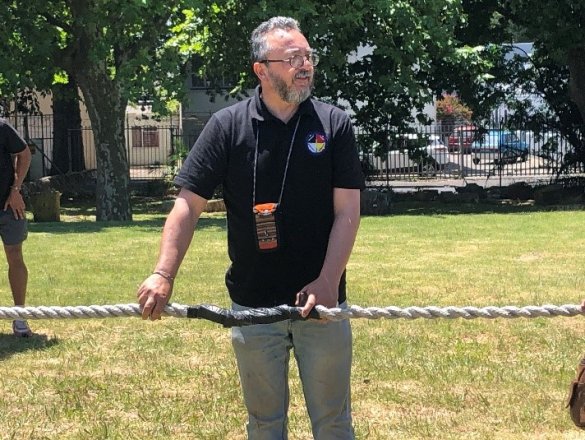Positive Behaviour Intervention and Resource Centre breaking ground
The Positive Behaviour Intervention and Resource Centre in Wynberg is the first special school of its kind in South Africa.
The Western Cape Education Department (WCED) launched a pilot programme in 2018 that was facilitated by Neville Goliath, Provincial Manager: Positive Behaviour, to conceptualise and operationalise the possibility of a support programme for in-school learners that present with high-level behavioural needs. The extended pilot programme tested various models of intervention as it would be allowed to fit into the current policy framework and support delivery models.
A heritage site in Wynberg, previously known as Tenterden Child and Youth Care Centre, was acquired by the WCED to test the feasibility of such a programme. The results of the pilot programme were good and the registration of the Positive Behaviour Intervention and Resource Centre (PBIRC) was granted on 1 January 2022. This was the first programme to be established and is currently serving the schools in the Metro Districts.
The programme finds itself as part of a continuum of support responses to learner behavioural needs. The behaviour support pathway places this programme at the high-level of support to learners experiencing behaviour as a barrier to learning.
Candidates for the programme at PBIRC are learners who experienced multiple interventions at classroom level and exhausted many discussions by the School-based Support Team (SBST) and received intensive therapeutic support by the District-based Support Team (DBST) and now needs something more as they are at risk of suspension and possible expulsion.
Children at the centre engage adults with extensive experience in working with learners at risk, specialised teachers, psychologists and occupational therapists that are led by a principal and renowned positive behaviour practitioner, Moosa Mahadick. He managed to bring the conceptual practice model that the WCED proposed into an institutional form that now serves the needs of children on the brink of expulsion. He leads this team with specialised skills in holistic response to the needs of the learners that was referred into the programme.
The individual Support Plan of the learner could comprise psycho-social interventions and occupational therapy support to respond to the functional challenges that the child might experience. These therapeutic needs respond to the challenges in the life space of the child and this could include coping with conflict, dealing with anger expression, problem solving skills and identifying resiliency factors required to survive their lives.
Parental participation is an important participant in the programme. However, this programme prides itself in the practice of giving these children relationships that are meaningful and not harmful. Therefore, it’s not about the programme but what the child finds in relationship.
Partnerships with other service providers allow for a balanced approach to intervention that includes the resilience compass of Belonging, Achievement, Power, Purpose, Safety and Adventure. These partners include programmes such as The Waves for Change (Surf Therapy), Butterfly Art project and the animal rescue programme called DARG. During the 6-8-week intervention programme, children would be assessed, supported, kept up to date with curriculum needs and taught new skills. All of this happens in collaboration with the referring school.
Staff development is important to align the school with the needs of the child and to adopt the positive behaviour and strengths-based approach to discipline.
The Positive Behaviour Intervention & Resource Centre is more just a school; it’s a deliberate attempt to draw a circle that take kids in. Creating a space where kids belong and to reconnect them with the important relationship that a child needs in an adult. To guide them through their rites of passage towards adulthood and in so doing acquiring the vital skills only found in relationships. These are the lessons taught and learned at the School of Courage. Not to keep up with the curriculum only, but to reinvent a curriculum of care that compliments the achievements that all kids have access to. The school is in its infancy days that presents the possibility of enormous growth. Expanding the programme is inevitable and the WCED is determined to create environments of positive behaviour and caring school cultures.
Visit https://pbirc.co.za/ for more information.



